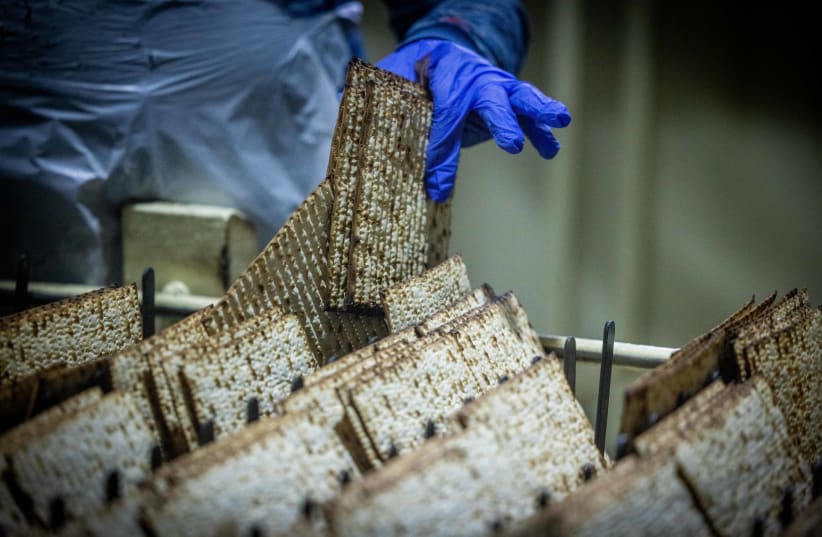Nearly half of all Israeli Jews support allowing hametz – leavened bread traditionally prohibited on Passover – into hospitals during the holiday, despite most Israelis not eating any during that time, according to a pre-Passover poll from the Israel Democracy Institute.
The poll was conducted in light of the Hametz Law, which was recently passed in the Knesset, that barred all hametz products from entering hospitals during the holiday.
The survey found that eschewing hametz during the holiday is rather widespread in Israel, even among those non-observant, and discussed both hospitals and IDF bases.
What did the poll say about hametz on Passover in Israel?
According to the poll's findings, nearly half (48%) of all Israeli Jews say people should be allowed to bring hametz into hospitals during the holiday. While this isn't an absolute majority, it still is more than the number of Israeli Jews against bringing hametz into hospitals (44%).
Reflecting the severe political division on the issue, support and opposition for the Hametz Law was divided on party lines. Most (72%) of those who supported the parties in the current coalition supported prohibiting hametz in hospitals during Passover, while most (77%) of those who support the opposition think it should be allowed.
This is despite the fact that most (71%) of Israeli Jews refrain from eating hametz on the holiday. This is the case for 100% ultra-Orthodox, religious and observant mastorti (traditional) Israeli Jews, 92% of non-observant masotri Jews and 37% of secular Jews.
Almost all Israeli Jews oppose searching bags for hametz at hospitals
Israeli Jews are far more unified in regard to an aspect of enforcing the Hametz Law, specifically regarding bag searches.
A vast majority of Israeli Jews (76%) oppose letting hospital staff search bags of visitors for hametz during the holiday. This is also the case among observant Jews, even ultra-Orthodox Jews, where a large swath of the demographic (41%) opposes the measure.
On party lines, most (57%) coalition supporters and almost all (91.5%) opposition supporters agreed.
Interestingly, this is very different compared to opinions on bringing hametz into IDF bases. Here, just 54% of Israeli Jews think hametz should be banned, but even fewer Israeli Jews (39.5%) think it should be allowed.
One possible solution that a majority (59%) of Israeli Jews endorsed was the establishment of "hametz zones" in hospitals. This would let visitors who eat leavened bread products during Passover do so safely in the hospital without bothering anyone. This was also supported by a wider majority (70%) of Israeli Arabs.
What is the Hametz Law?
The Hametz Law has been a major issue in Israel for years and is considered by many to have been what toppled the Bennett-Lapid government in 2022.
The current law, passed earlier this week by the Knesset, requires that a hospital director “take into consideration the rights and needs of patients” before making such a decision. It also requires that a directive to bar hametz be published on the hospital’s website and that signs be put up within the hospital, as well as enables the director to appoint a hospital employee to update fellow employees and patients on the matter.
According to the bill’s explanatory section, the legislation was intended to overcome a ruling by the High Court of Justice from April 2020, that a ban on bringing hametz into a hospital on Passover was given without authority and therefore void.
Eliav Breuer contributed to this report.

